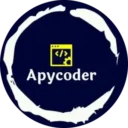Author: Asif Khan
Arduino programming is a gateway to countless innovative projects, from simple gadgets to complex systems. The right Integrated Development Environment (IDE) can significantly enhance your coding experience, making development smoother and more efficient. This blog explores the top IDEs for Arduino programming, highlighting their features, advantages, and how they can elevate your projects.
1. Arduino IDE: The Classic Choice
Overview
The Arduino IDE is the default development environment provided by Arduino. It’s a robust tool for writing, compiling, and uploading code to Arduino boards. Since its inception, it has been the go-to IDE for Arduino enthusiasts and professionals alike.
Features
- User-Friendly Interface: The IDE is known for its simplicity and ease of use, making it suitable for beginners and experts.
- Library Integration: Comes with built-in libraries and allows easy integration of additional ones.
- Cross-Platform Compatibility: Available on Windows, macOS, and Linux.
- Serial Monitor: Built-in serial monitor for debugging and communication with Arduino.
Advantages
- Ease of Use: Intuitive design and straightforward features.
- Wide Community Support: Extensive documentation and community forums.
- Regular Updates: Continuous improvements and updates from the Arduino team.
Website: Arduino IDE
2. PlatformIO: Advanced Features for Professionals
Overview
PlatformIO is an open-source ecosystem for IoT development that supports multiple platforms, including Arduino. It integrates with popular editors like Visual Studio Code and Atom, offering advanced features and tools for professional developers.
Features
- Multi-Platform Support: Supports a wide range of microcontroller platforms beyond Arduino.
- Advanced Code Editing: Features like code autocompletion, linting, and error checking.
- Built-In Debugger: Integrated debugging tools for troubleshooting.
- Version Control Integration: Built-in Git support for version control.
Advantages
- Enhanced Productivity: Advanced features for efficient coding and debugging.
- Customizable Environment: Highly customizable to fit personal preferences.
- Active Development: Regular updates and feature enhancements.
Website: PlatformIO
3. Visual Studio Code with Arduino Extension: Versatile and Powerful
Overview
Visual Studio Code (VS Code) is a popular code editor developed by Microsoft. With the Arduino extension, it becomes a powerful IDE for Arduino development, offering a range of features tailored for coding and debugging.
Features
- Rich Extension Ecosystem: Access to a wide range of extensions for enhanced functionality.
- Code IntelliSense: Advanced code completion and suggestions.
- Integrated Terminal: Run commands and scripts directly within the editor.
- Customizable Interface: Highly customizable to suit individual workflows.
Advantages
- Versatility: Supports multiple programming languages and platforms.
- Enhanced Debugging: Powerful debugging tools and extensions.
- Community Support: Extensive community and third-party extensions.
Website: Visual Studio Code
4. Atmel Studio: Ideal for AVR Programming
Overview
Atmel Studio, developed by Microchip Technology, is specifically designed for programming AVR microcontrollers, including those used in many Arduino boards. It offers a comprehensive suite of tools for developing and debugging embedded applications.
Features
- Integrated Debugging: Advanced debugging tools and simulation capabilities.
- Code Templates: Predefined code templates for quick development.
- Advanced Code Editor: Features like code navigation and refactoring.
Advantages
- Comprehensive Tools: A complete suite of development tools for AVR programming.
- Detailed Documentation: Extensive documentation and support from Microchip.
- Professional Features: Advanced features for experienced developers.
Website: Atmel Studio
5. Code::Blocks with Arduino Plugin: Lightweight and Flexible
Overview
Code::Blocks is a free, open-source IDE known for its lightweight and flexible nature. By adding an Arduino plugin, it can be transformed into an effective tool for Arduino development, offering a different set of features compared to other IDEs.
Features
- Customizable Interface: Highly customizable to meet specific needs.
- Plugin Support: Extend functionality with various plugins, including Arduino.
- Cross-Platform: Available on Windows, macOS, and Linux.
Advantages
- Lightweight: Minimalistic and resource-efficient.
- Flexible Setup: Customizable environment for different project requirements.
- Active Community: Support from an active user community.
Website: Code::Blocks
6. Arduino Web Editor: Cloud-Based Convenience
Overview
The Arduino Web Editor is a cloud-based IDE provided by Arduino. It allows developers to write, compile, and upload code directly from their web browser, offering a convenient solution for on-the-go development.
Features
- Cloud Storage: Save sketches and libraries in the cloud for easy access from any device.
- Browser-Based: No need to install software; use directly from a web browser.
- Cross-Platform: Works on any operating system with a modern web browser.
Advantages
- Accessibility: Access your projects from any device with an internet connection.
- Automatic Updates: No need to manually update the IDE; improvements are applied automatically.
- Collaboration: Share and collaborate on projects easily.
Website: Arduino Web Editor
7. Arduino Makefile: Custom Build System
Overview
Arduino Makefile is a command-line tool that allows for custom build processes for Arduino projects. It’s ideal for developers who prefer using a makefile-based workflow and need more control over the build process.
Features
- Custom Build Process: Define custom build rules and processes.
- Command-Line Interface: Use terminal commands for building and uploading code.
- Integration with Other Tools: Easily integrate with other build tools and scripts.
Advantages
- Customization: Greater control over the build process and project configuration.
- Automation: Automate repetitive tasks and build processes.
- Flexibility: Ideal for advanced users with specific build requirements.
Website: Arduino Makefile
Conclusion
Choosing the right IDE for Arduino programming can significantly impact your development experience. Whether you prefer a classic tool like the Arduino IDE, an advanced environment like PlatformIO, or a versatile editor like Visual Studio Code, each IDE offers unique features to enhance your projects. Consider your needs and preferences when selecting the IDE that best suits your workflow.
Author: Asif Khan
For more insights and updates on Arduino programming and other tech topics, connect with me on social media:
